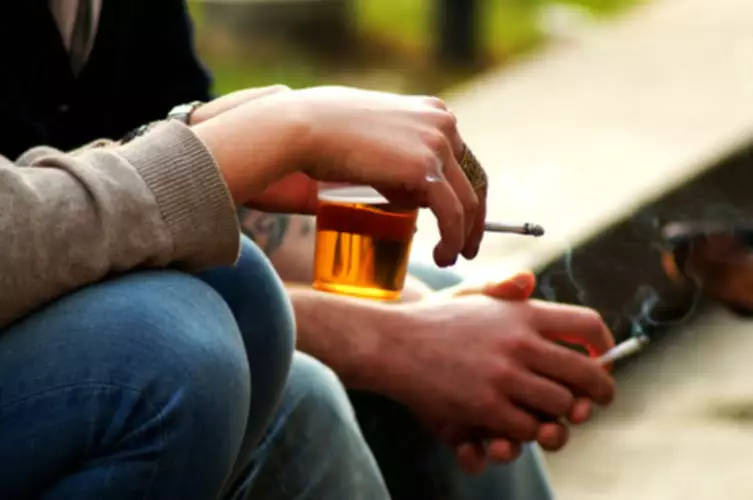What Does Alcohol Do to Your Body?

You probably already know that excessive drinking can affect you in more ways than one. When it comes to alcohol, if you don't drink, don't start for health reasons. Heavy drinking also has been linked to intentional injuries, such as suicide, as well as accidental injury and death. Older adults are also more likely to be on several medications, including sleep medications and other drugs, which may be dangerous when taken in combination with alcohol. One Gallup survey found that 65% of 18 to 34-year-olds say alcohol is bad for your health compared to 39% of those 55 and older. Millions of readers rely on HelpGuide.org for free, evidence-based resources to understand and navigate mental health challenges.
Harmful effects of long-term alcohol use
So, your system prioritizes getting rid of alcohol https://ecosoberhouse.com/article/alcohol-poisoning-signs-and-symptoms/ before it can turn its attention to its other work. Cirrhosis, on the other hand, is irreversible and can lead to liver failure and liver cancer, even if you abstain from alcohol. If alcohol continues to accumulate in your system, it can destroy cells and, eventually, damage your organs. But when you ingest too much alcohol for your liver to process in a timely manner, a buildup of toxic substances begins to take a toll on your liver. Your liver detoxifies and removes alcohol from your blood through a process known as oxidation.
Availability of data and materials
Most American adults drink alcohol at least occasionally, but about 1 in 4 knock back several drinks in a short period of time at least once a year. About 1 in 6 American adults say they regularly binge drink, sometimes several times a month. Binge drinking is behavior that raises blood alcohol levels to 0.08%. That usually means four or more drinks within two hours for women and five or more drinks within two hours for men. So what should you do if your loved one initially denies having a binge drinking problem? You might want to give them a few days to reflect on what you said.
Health Topics: Binge Drinking
Long-term damage from heavy alcohol use isn’t limited to people with alcohol use disorder. Binge drinking is a type of excessive alcohol consumption that raises the BAC to 0.08 g/dL, the point at which a person is legally impaired. This usually involves drinking five or more drinks for men or four or more for women on a single occasion lasting a few hours. Binge drinking is not the same thing as alcohol use disorder. Most people who binge drink are not addicted to or dependent on alcohol.
To help an underage drinker drop the habit, you’ll need to understand their motivations and be willing to converse with them in a nonjudgmental way. Because underage drinking can come with legal consequences, it’s also necessary binge drinking effects to establish rules and consequences. Whatever your personality, though, there are steps you can take to modify your habits and take back control of your drinking. As you start to prioritize your alcohol use, it can have a negative effect on your work, school, or social life. You might try cutting back on your drinking but find that you suffer headaches, fatigue, anxiety, or irritability on the days when you don’t drink.
Helping Someone with a Drug Addiction

Generally, this is around four drinks for women and five drinks for men. But bodies absorb alcohol differently depending on factors including body type and age. The National Institute on Alcohol Abuse and Alcoholism defines binge drinking as a pattern of drinking alcohol, typically within a 2-hour period, which brings a person’s BAC to 0.08% or higher. A person’s BAC is the percentage of alcohol in their blood, and in the United States, a BAC of 0.08% means the person is legally intoxicated.
Brain

Binge drinking is a pattern of drinking an amount of alcohol—beer, wine, liquor, and similar beverages—that brings your blood alcohol concentration (BAC) up to 0.08 grams of alcohol per deciliter (100 milliliters) of blood (0.08 g/dL). This is the amount of alcohol in your system to be considered legally impaired. For most adults, that equates to five drinks for men or four drinks for women within a two-hour period. Binge drinking also increases the likelihood of unsafe sexual behavior and the risk of sexually transmitted infections and unintentional pregnancy. These risks are greater at higher peak levels of consumption. Because of the impairments it produces, binge drinking also increases the likelihood of a host of potentially deadly consequences, including falls, burns, drownings, and car crashes.
- It was middle-aged and older adults who showed the most substantial increase in binge drinking.
- But there’s plenty of research to back up the notion that alcohol does lead to weight gain in general.
- Millions of readers rely on HelpGuide.org for free, evidence-based resources to understand and navigate mental health challenges.
- Excessive alcohol also affects your actions, which can increase your risk of injuries and death from motor vehicle accidents, drowning, suffocation, and other accidents.
Ways that your standard hangover cures won’t even begin to touch. The morning after a night of over-imbibing can cause some temporary effects on your brain. Things like trouble concentration, slow reflexes and sensitivity to bright lights and loud sounds are standard signs of a hangover, and evidence of alcohol’s effects on your brain. When you drink too much alcohol, it can throw off the balance of good and bad bacteria in your gut. Your gut microbiome is a hotbed of bacteria that help keep your digestive system happy and healthy.
People often use binge drinking as a way to self-medicate symptoms of depression, anxiety, and stress. You may do it as a way to relax after a difficult day at work or blow off steam after college exams. Many people also use drinking to cope with difficult periods in their life, such as the death of a loved one or the end of a romantic relationship.

Deaths from excessive alcohol use

Excessive alcohol also affects your actions, which can increase your risk of injuries and death from motor vehicle accidents, drowning, suffocation, and other accidents. Here’s a look at how all that alcohol is impacting the health of Americans over both the short and long term. By Sarah Bence, OTR/LBence is an occupational therapist with a range of work experience in mental healthcare settings. Drinking in moderation is considered to be consuming two drinks or less in a day for men and one drink or less in a day for women.
